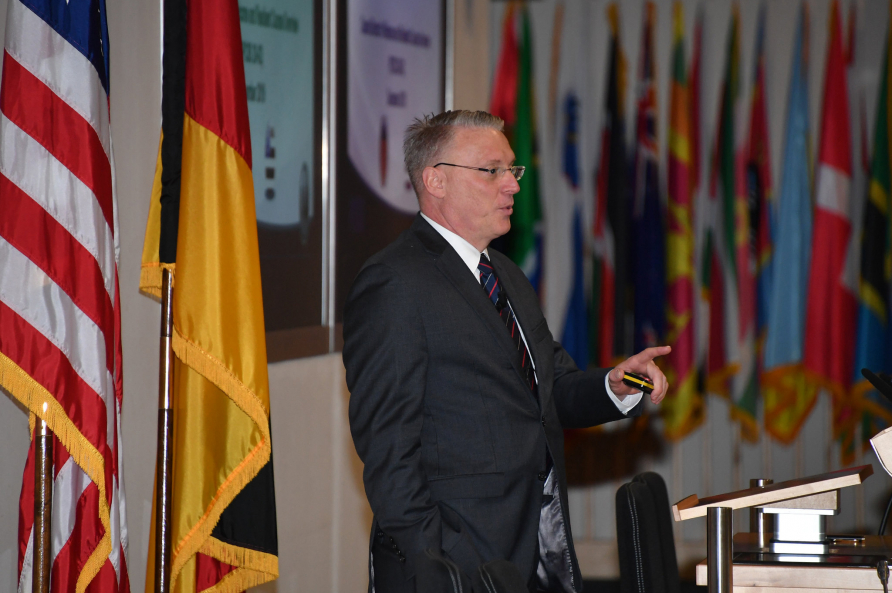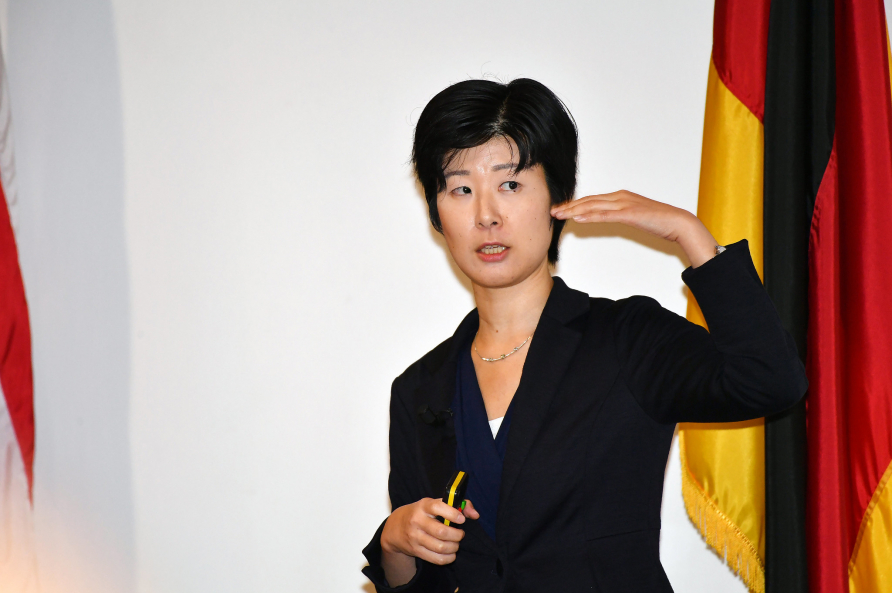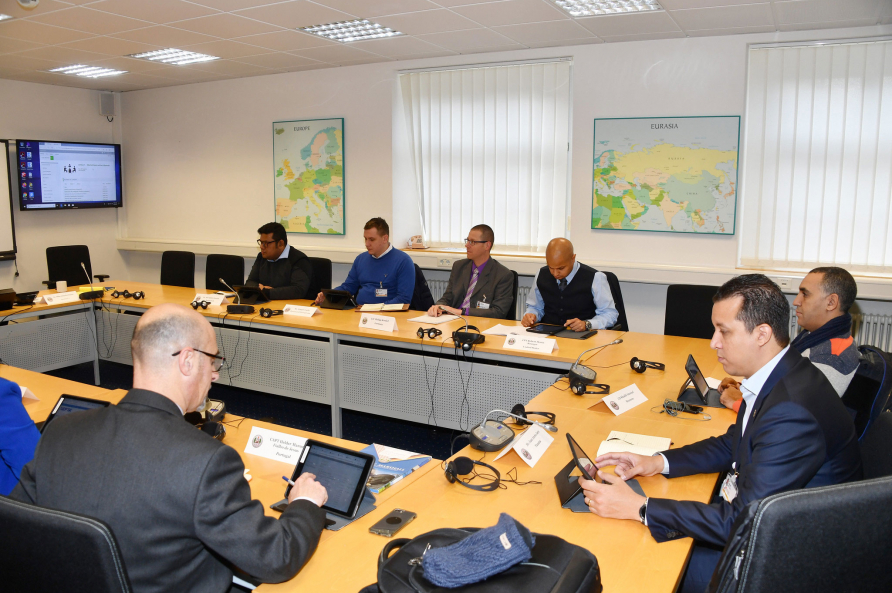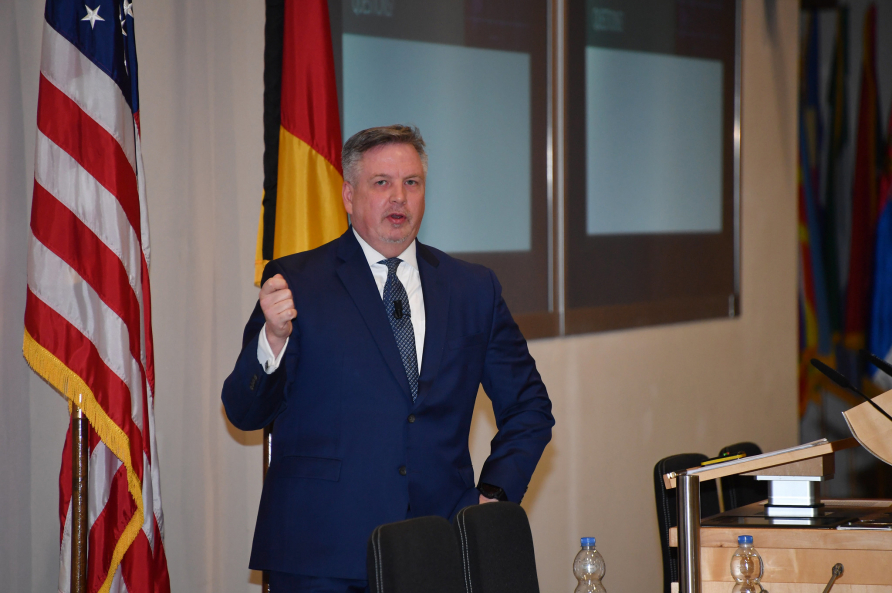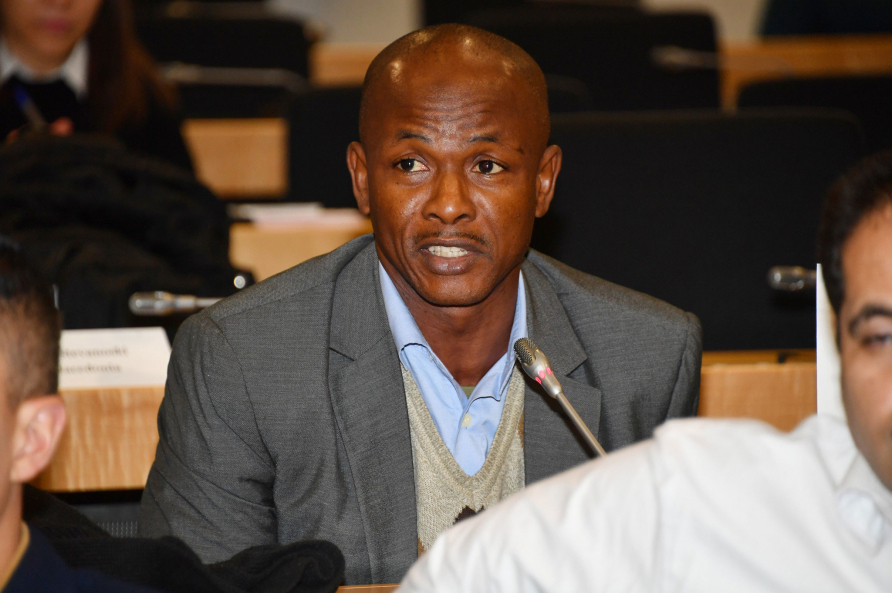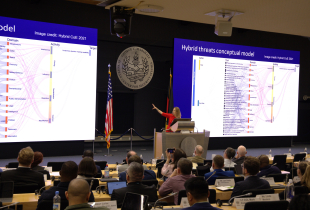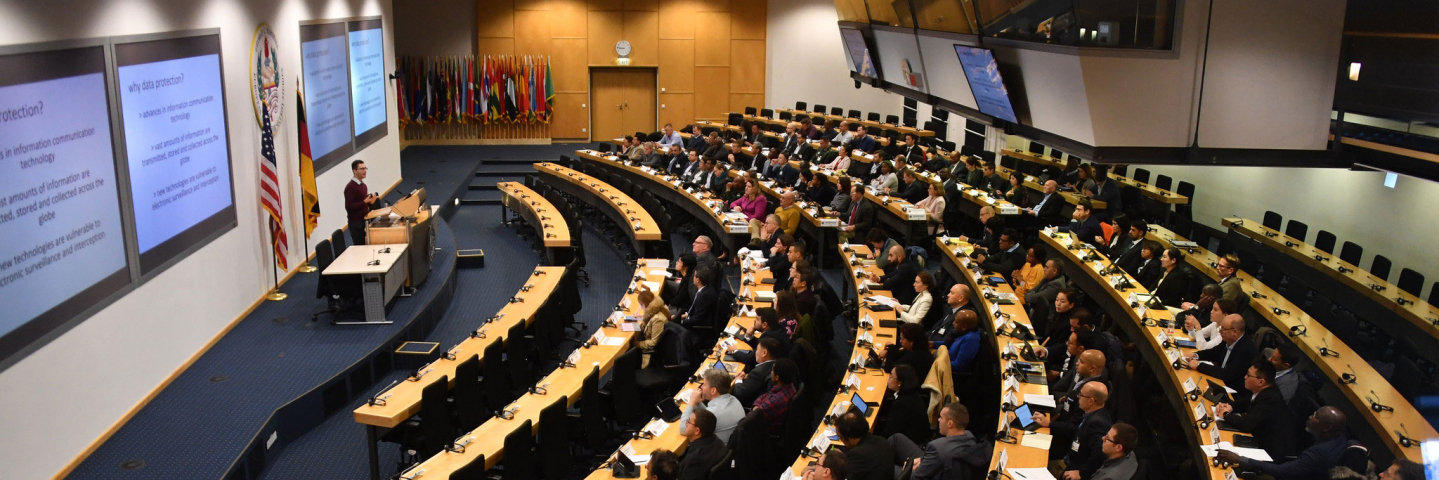
Marshall Center’s Comprehensive Cybersecurity Program Highlights Governance Challenges
By Christine June
Public Affairs Office
George C. Marshall European Center for Security Studies
GARMISCH-PARTENKIRCHEN, Germany – Close to 90 cyber professionals from 49 nations are now equipped with an understanding of the complexities of cyberspace, and skills and knowledge to address strategy and policy, both domestically and globally.
They graduated from the Program on Cyber Security Studies at the George C. Marshall European Center for Security Studies Dec. 19. The Marshall Center is a 26-year-old, German-American security and defense studies institute based here.
Most Comprehensive Cybersecurity Course
“Our program is the most comprehensive cybersecurity course of its kind with its emphasis on governance challenges,” said retired U.S. Marine Corps Col. Phil Lark, the PCSS program director, who was instrumental in developing this transnational course for the Marshall Center.
Created in 2014, PCSS focuses on the cyber strategy and policy development challenges and opportunities each of the participants face in their daily duties to enhance international cooperation. This program emphasizes a whole-of-government strategic policy development and planning approach by gaining a common understanding of the magnitude of today’s cyber risks.
Top Team of Cyber Professionals
There were close to 50 expert speakers from military and civilian partnerships presenting in this iteration. Topics included: privacy and security; diplomacy and statecraft; critical infrastructure protection; international laws and norms; supply chain and vendor risks; and, assessments and digital democracy.
“We have assembled a top team of cyber professionals who are going to provide you a rich academic program where you will learn about the best practices from others across the globe,” said retired U.S. Army Lt. Gen. Keith W. Dayton, the Marshall Center’s Director, during his remarks on the first day of the program Dec. 3.
Thanks to PCSS
Sheryl Natasha Christine Vangadasamy, a participant from this iteration and special advisor to the Republic of Seychelles’ Ministry of Home Affairs, said that when she is back home working with her colleagues on their country’s new cybersecurity strategy, she can provide guidelines for its foundation thanks to PCSS.
“The PCSS has provided me with a vast amount of knowledge about legislation, international law and best practices,” she said.
Another aspect that she learned during PCSS is working with the private sector, non-government organizations and civil societies to create citizen awareness among her people in regards to cybercrime and cybersecurity.
“Our most critical infrastructure lies within the private sector so we need to include and build trust with them, and non-government organizations and civil societies so that we are able to share information and build partnerships,” Vangadasamy said.
The program’s participants are senior government officials with the professional knowledge and capabilities to deal with transnational cyber security challenges. The PCSS is tailored for diplomats, legislators, ministerial staffs, policymakers, military and law enforcement officers, and other national officials.
“We invited them to participate because of their senior national-level duties, professional skills, expertise and knowledge,” said Lark. “We want participants to share what they learned here at the Marshall Center with others – those in their countries, their neighbors regionally and with each other globally.”
In total, there were 25 interconnecting themes and topics in PCSS.
“We are focusing on areas that are not just within the normal department of defense or ministry of defense lanes or areas of expertise, but are also examining whole-of-government approaches in addressing cyber security issues and challenges.” Lark added, “We encourage sharing best practices and advance initiatives that transcends the traditional notions of governmental and commercial responsibilities.”
In particular, PCSS delves into topics like Internet governance, Internet freedom, combating terrorism and cybercrime, developing public and private partnerships, and exploring other critical cyber-related policy issues.
Themes added this year included certifications, standards development management, supply chain management and workforce development.
Cyber workforce development is a challenge said Mowlid Houssein Aden, participant and director of the Security and Risk Compliance Department of the Ports and Free Zone Authority in Republic of Djibouti.
“I learned here that there are strategies in place to mitigate shortages in recruitment and retention of skilled cyber professionals, and I hope I will be able to amend these shortages when I get back to work,” he said.
The new topic on workforce development was also important to Vangadasamy.
“In my position where I work, I help law enforcement agencies to come up with recruitment and training plans,” she said. “From what I learned here, I am taking recruiting and training plans into consideration as we work on the new cyber strategy, policy and cybercrime act.”
U.S. Army Brig. Gen. Maria Biank, deputy of the Plans and Operations Center of the Command, Control, Communications and Computers/Cyber Directorate at U.S. European Command, talked about the military perspective on cyber defense during PCSS Dec. 13.
“The one tangible thing that I believe the Marshall Center does is providing that rolodex with people to call or email when you have a question and you are not sure who else to ask,” Biank said after her presentation. “It really is phenomenal what the Marshall Center is able to do and bring together.”
